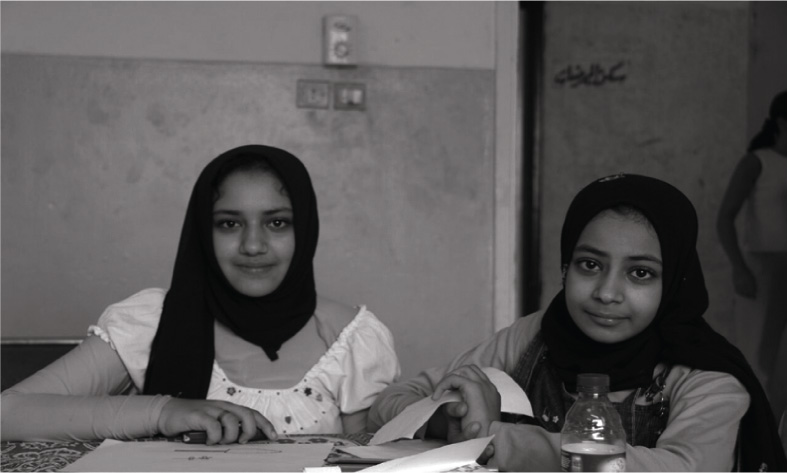PROMOTING GIRLS’ LITERACY AND LIFE SKILLS IN URBAN SLUMS

Girls Dreams (GD) was MAR’s first project that focused on leveraging the unique potential of adolescent girls to change their future through education and empowerment, in a hope that they become mothers later and by choice and with the capacity to raise a healthier, better educated family, which in turn would lift their community out of the cycle of poverty. The GD program has been one of MAR’s largest projects, and has been able to graduate over 600 girls over the span of 5 years.
Today, more than 600 million girls live in the developing world and their numbers—already the largest in history — are expected to peak in the next decade. Among them, over 90 million young girls are thought to be out of school world-wide. More than a quarter of them become mothers before 18. The lack of schooling exacts a heavy toll on the well-being and the future of these girls and their families.
Women with formal education are much more likely to use reliable family planning methods, delay marriage and childbearing, seek medical care, ensure their children are immunised, be better informed about their children’s nutritional requirements, and adopt improved sanitation practices. An additional year of schooling for girls reduces the probability of child mortality by 5 to 10%, and an extra year in primary school boosts girls’ eventual wages by 10 to 20% and in secondary education by 15 to 25%.
Despite the special attention given in Egypt by the government and civil society organisations to reduce gender disparity in education and to achieve universal primary education, school dropout rates, especially female, continue to rise. In many rural and slum areas, some 50% of eligible children either do not attend school, or eventually drop out before the age of 11.
Girls’ dropout rate is still higher than boys due to numerous reasons. Chief among these is the cost. Basic education is theoretically free in Egypt, but the real cost of education to the household, direct in the form of fees or indirect in the form of private tutoring and other requirements, is considerable, and accordingly families prioritise boys’ education over that of girls.
Looking for solutions, MAR reached out to an experienced local NGO : The Association for the Development and Enhancement of Women (ADEW), that has been supporting women living in poor urban slums since 1987. Established, well – connected community partners like ADEW are an invaluable resource and play an important role as intermediaries with skeptical parents. The goal of this partnership has been to scale-up existing activities that promote literacy and life skills of girls from poor families who live in the marginalised slum communities of Mansheiet Nasser and Masr El-Qadima.
Life in the slums is particularly harsh for girls, who grow up in an environment of drastic inequality of opportunity. Girls usually leave school before their brothers and remain mostly confined to their homes where their potential to escape poverty is slim. Domestic violence is ubiquitous.
There is minimal official statistical information about the population of the slums. The millions living in these areas, including countless girls, are largely ‘invisible’ and therefore, to a great extent, forgotten.
The classroom – based curriculum acquaints girls with their peers and improves their self – image and confidence. It also helps develop an understanding of health, hygiene and nutrition and provides basic life skills. Course graduates can then sit exams organised by the Ministry of Education to obtain a literacy certificate that allows for re – enrolment in school.
ADEW representative, Sarah Hani, on our partnership:
“Thank you for your interest, your passion, and your belief in our work. This kind of partnership is what keeps us going & managing our way through the challenges we face. You’re not just partners in this program, but an inspiring developmental institution that we’re so fortunate to be working with on equal grounds.”
The trust that our local partner has been able to establish with the families in these communities has played a big part in its success and often the classrooms were filled within days with girls having to be sent away to wait for the next.
In 2018, as MAR refocuses on its core mission plan of helping vulnerable mothers, GD will be open its last classrooms directly supervised by MAR. However, with the realisation of how effective this program has been in the lives of the girls in the Cairo slums, MAR is working closely with another Brussels – based NGO : Fempower Initiative founded in 2017 to pass on the knowledge and contacts to help this wonderful program to carry on.
